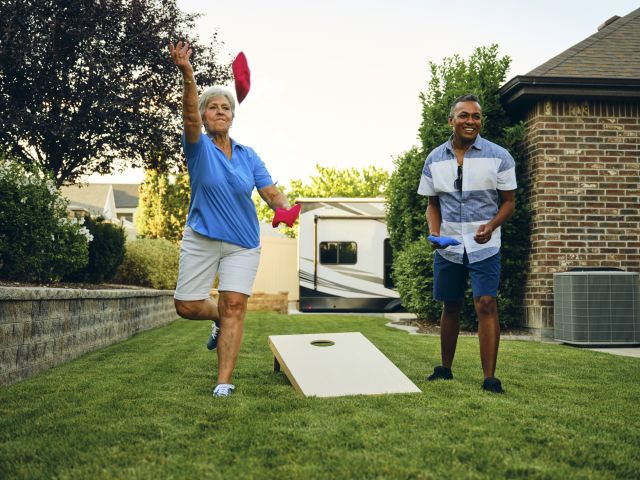Updated on January 25, 2023.
Amid our crazy-busy lives, we don’t always make time to unwind. But if you can’t carve out a few moments for something fun today, try to do so soon. Take that vacation, sing a few rounds of karaoke with friends, or spend the day at the beach.
Research shows that being joyful and spending time doing leisure activities—particularly while tapping into a social network—may help reduce the risk of a host of diseases and even help extend your life.
Good times for better living
Getting regular exercise offers a boon for longevity, but so does making time for more low-key activities. People who read regularly had a 20 percent reduction in the risk of dying over the course of 12 years when compared to nonreaders, according to a 2017 study published in Innovation in Aging. Having other hobbies can help, too.
A 2016 study in the Journal of Epidemiology surveyed 1,853 people over the age of 65 in Japan. They found that people who had hobbies and “ikigai,” a sense of purpose in life, were not only more likely to live longer but to live healthier along the way. They reported less decline over time in the activities of daily living like eating, grooming, bathing, and moving about easily on their own. Other research has shown that people who take part in recreational activities report better sleep and stress management and less depression. They are also more satisfied with their lives than those who are less engaged in pastimes.
Another study from Japan of 809 people in their 70s found that taking part in leisure activities was associated with better cognitive function and improved physical and mental health. According to the research, published in 2019 in PLOS One, leisure activities may have as much impact on well-being as factors like wealth and education.
In a 2016 article published in Gerontology, researchers found that an increase in leisure activities—including physical activity, crafts, religious activities, and travel—improved well-being among adults of all ages.
Leisure, friendships, and the impact of happiness
Why does having fun seem to facilitate living longer? Researchers aren't sure, but it may have to do with the side benefits of leisure activities.
Hobbies can help you maintain a supportive social network. Studies have shown that people who have friends may live longer than those who don’t, by up to 50 percent. A 2021 study from Brazil found that people aged 60 years and older who went to parties had a 17 percent reduction in mortality than those who didn’t. You don’t need throngs of people around you—just a few close friends you trust and enjoy will help.
Generally, older people who report high well-being—being happier with a greater sense of purpose and satisfaction—have a lower risk of dying as they age than those who don’t. One study assessed the well-being of people ages 52 to 79 on one day and followed up with them for about five years. The people who were most likely to display negative moods had a death rate of 7.3 percent, while those who displayed positive moods had a 3.6 percent death rate. A 2015 article in Social Science & Medicine sampled more than 31,000 U.S. adults and found that, when compared to the happiest people in the study, the least happy had a 14 percent higher risk of death.
Authors of the 2015 study noted that it’s difficult to pinpoint what it is about positive moods that may help keep us healthy. But cultivating the mindset could have physical benefits including reducing stress and building immunity. Positive well-being also has an array of protective mental health benefits, the researchers added, including improved resilience, creativity, and coping skills.
You don’t need to fill your entire day with recreation to boost your mood and health—nor can most of us, with obligations to work and family. But just as you would for eating well, exercising, and getting adequate sleep, make an effort to carve out time for fun. Whether it’s meeting or talking with friends, walking in nature, playing sports or games, or knitting, the things that bring you a little joy could benefit your life and lifespan.







